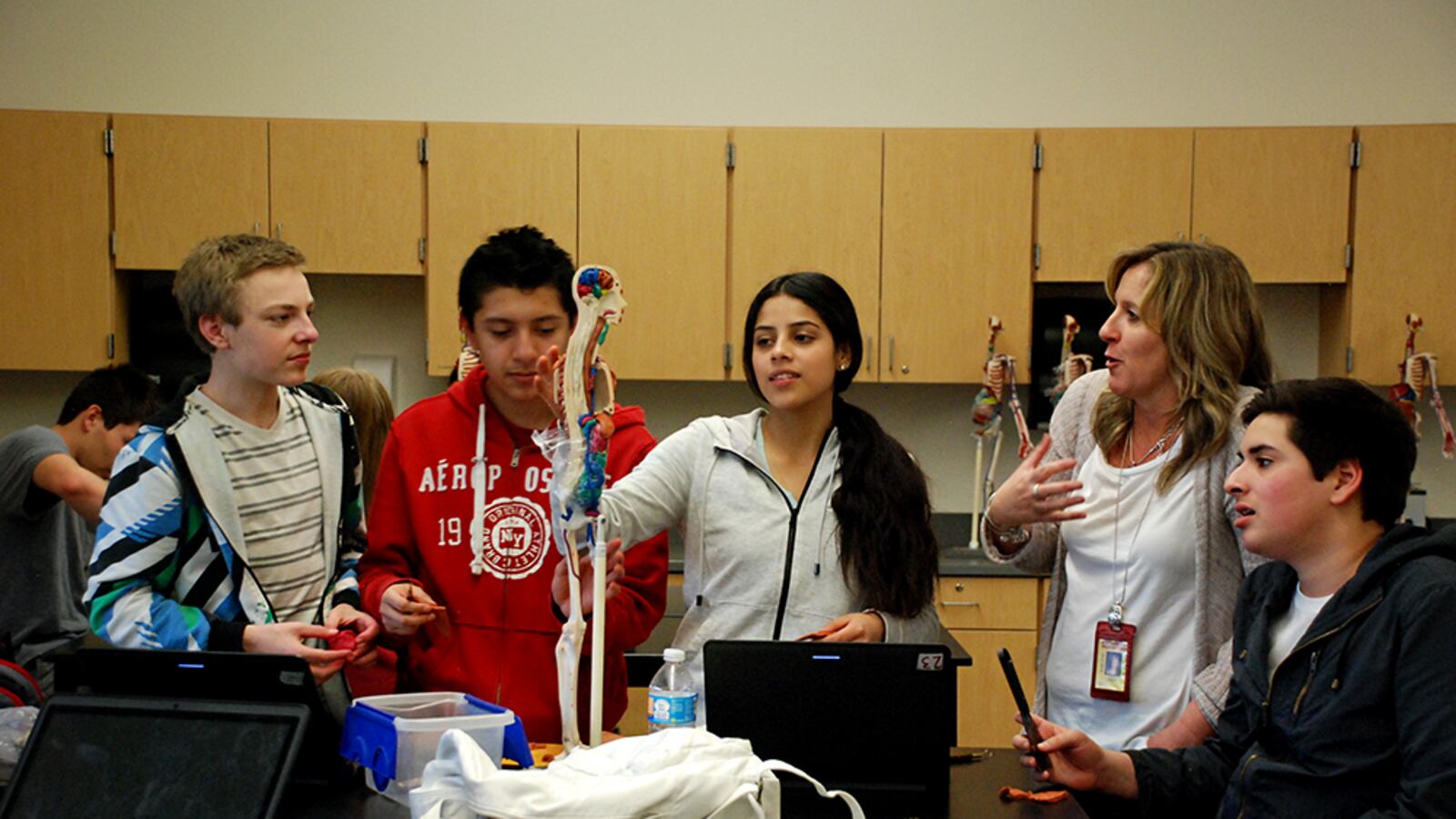More Colorado students could be building smartphone apps by the end of next school year.
In an effort to prepare students for the state’s booming technology job market, lawmakers are considering three bills that would beef up access to computer science classes and provide students with new credentials after they leave high school.
A Chalkbeat analysis last year found that only about two out of every seven students in Colorado have access to courses in STEM — short for science, technology, engineering and math.
The bipartisan bills could change that, increasing access to computer science courses for the state’s black, Latino and rural students, and — for the first time — begin to define what a quality STEM program is.
The first bill scheduled to be debated by the House Education Committee on Monday would require schools to include technology in lessons alongside traditional subjects, such as English and civics.
It would also require the education department to create lessons to help educators teach computer science as a standalone course, and set up a $500,000 grant program to help train them.
“Kids need to be up to speed on these things in order to function in the current marketplace,” said Senate President Kevin Grantham, a Canon City Republican and one of the bill’s sponsors, along with Speaker Crisanta Duran, a Denver Democrat. “The more they’re attuned to the technology of the times — all the better. It will help them in college and getting their job and careers.”
The technology sector is the fastest growing in Colorado. There are an estimated 13,517 open computing jobs in the state, according to Colorado Succeeds, an education reform advocacy group that represents the state’s business community.
Some states have already made the shift to include technology in their learning standards. In Arkansas, which made the change in 2015, officials say the new standards have already started to break down stereotypes about who can do computer science.
“What we’re trying to do is to make computer science a normal part of their academic lives,” said Anthony Owen, the state director for computer science education in Arkansas. “When we make it normal for everyone, it’s abnormal for no one.”
A second bill under consideration in Colorado would make mostly technical changes to the state’s new P-Tech schools, a model that mirrors a New York City school that partners with IBM to give students work experience and a path to an associate’s degree while in high school.
The model allows students to stay in high school for up to six years — which has caused schools that house P-Tech programs to worry about their graduation rates.
House Bill 1194 would change the way the state calculates graduation rates to avoid penalizing schools that have P-Tech students enrolled for an extra two years.
The third bill, House Bill 1201, would create a special kind of diploma that shows colleges and employers that its holder is proficient in STEM subjects. To get the diploma, students would have to take a variety of STEM classes, earn high marks on standardized math exams, and demonstrate their science skills through a special project they complete their senior year.
“I want to make sure, across Colorado, that we have clear expectations and that they’re equitable expectations,” said Rep. James Coleman, a Denver Democrat and sponsor of the bill. “All of our schools are doing a good job preparing our kids, but I want to be specific in terms of what our colleges and workforce is seeking in our graduates.”
The bill, however, stops short of defining what coursework students must complete. Local schools will decide that. That was important to Jess Buller, the principal of West Grand’s K-8 school who helped write the bill. He noted that different schools and districts offer different STEM courses.
“We want that STEM endorsement to be that sign of distinction, that a student completed a program and does not need the remedial work that might be required for other students,” Buller said. “The bill is specific enough, but flexible enough.”
Morgan Kempf, the STEM science specialist for Pueblo City Schools, said she is excited to offer such a credential.
In the absence of a special diploma, Pueblo Central High School, the city’s STEM school, has sought outside accreditation to give weight to its STEM courses. The school has also started handing out school letters, usually a tradition reserved for varsity athletes, to exceptional STEM students.
“It’s an extra stamp of approval that recognizes and appreciates what they’re doing and at the level of rigor they’re doing it at,” Kempf said. “That stamp of approval lets students and potential employers know they’re meeting expectations.”

